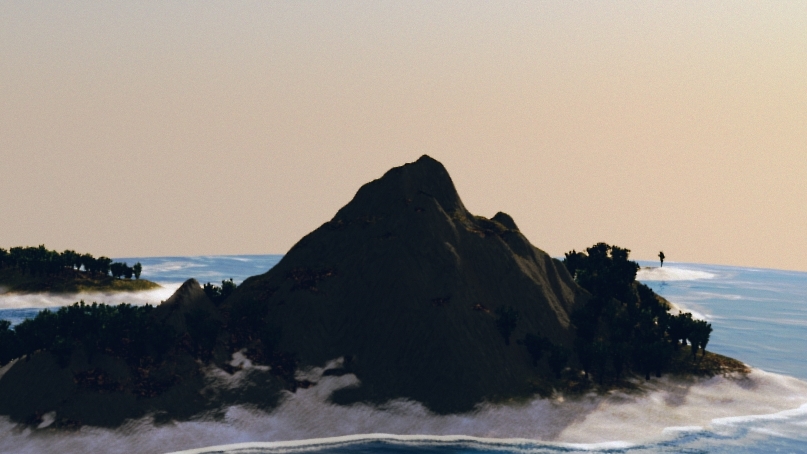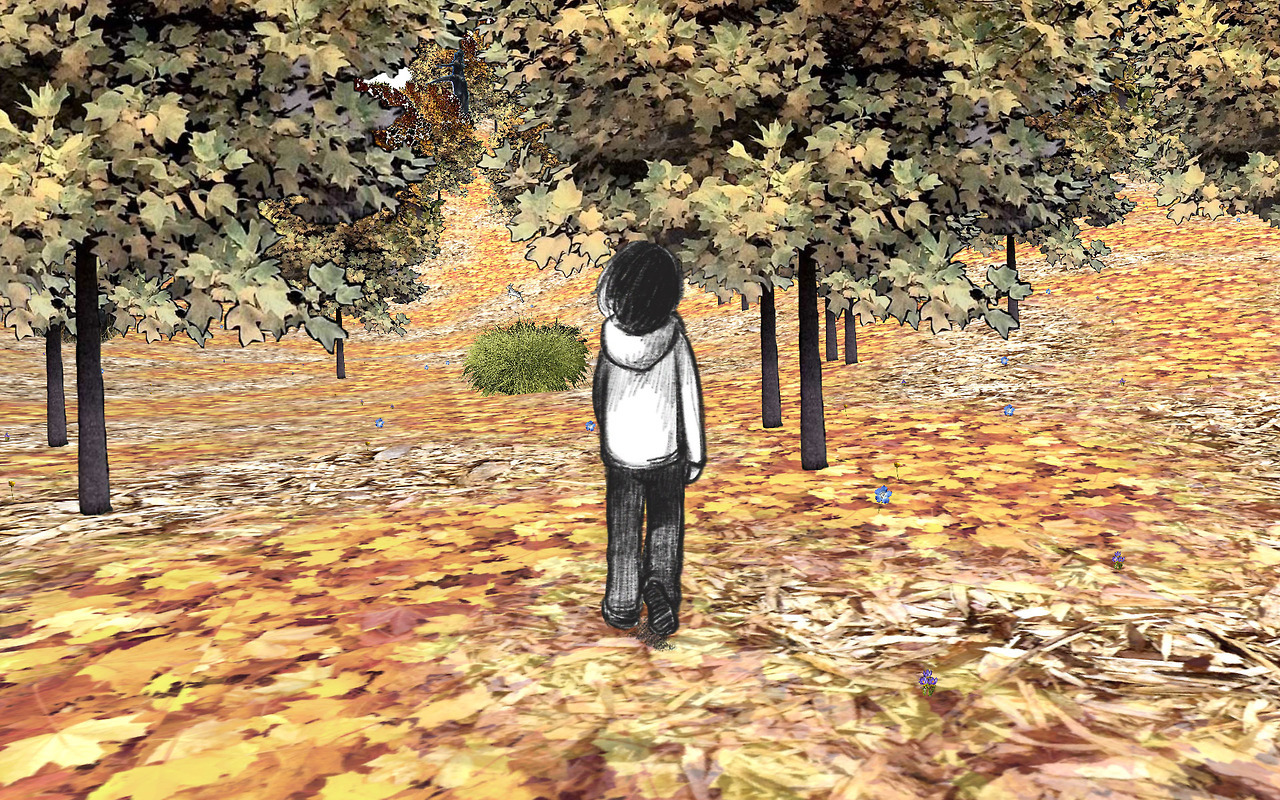
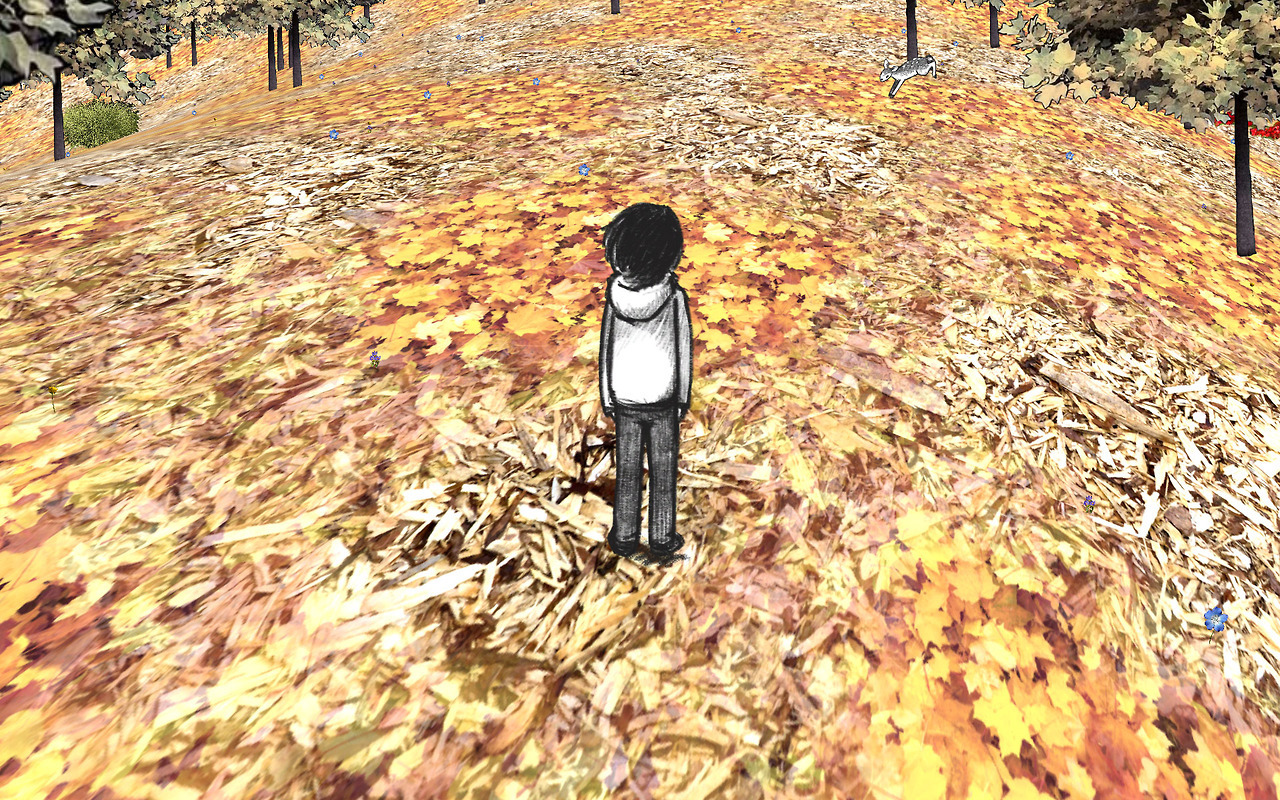
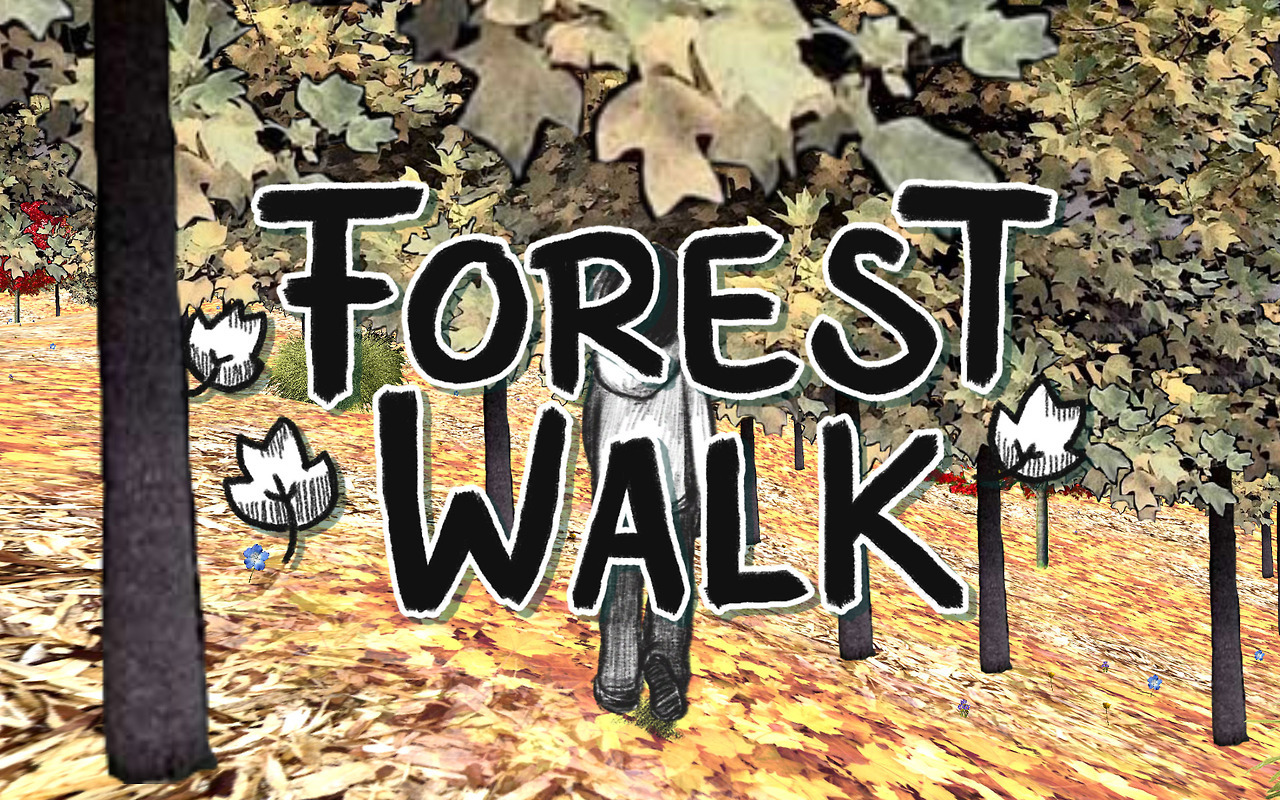
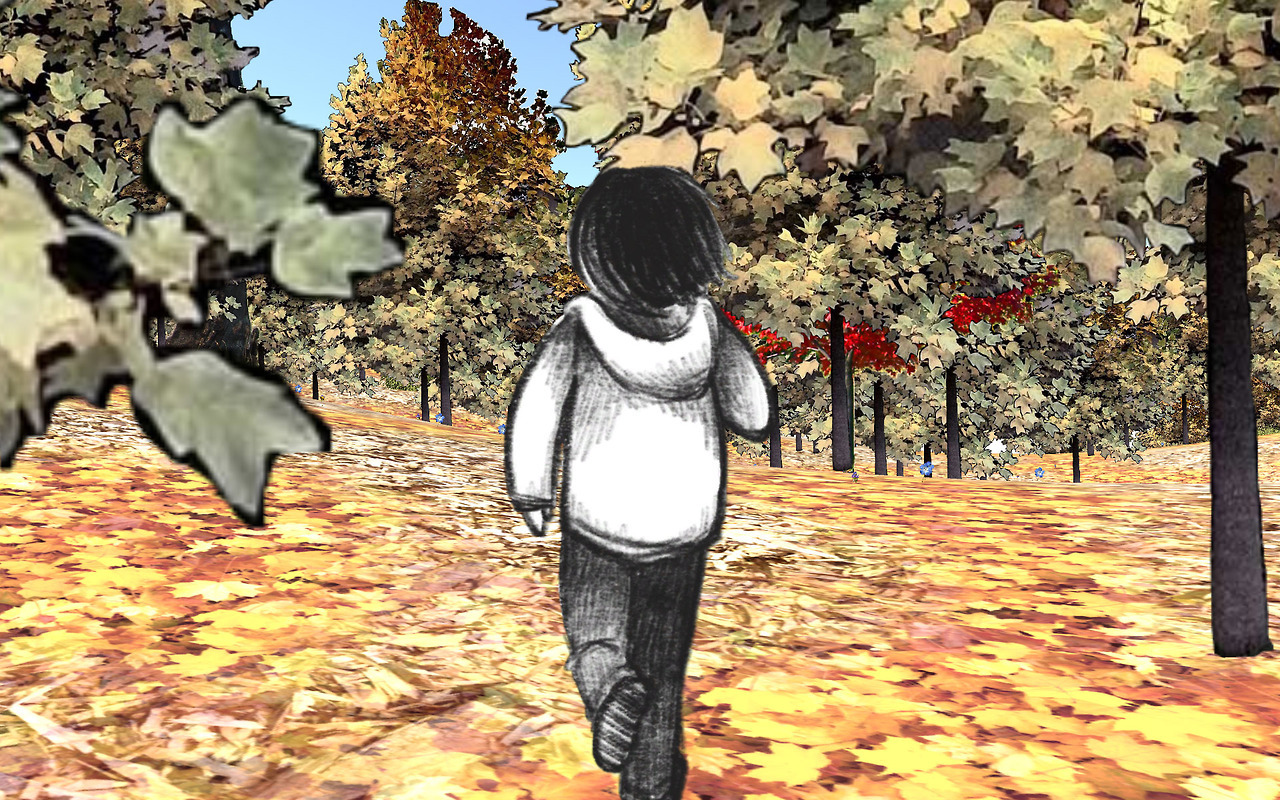
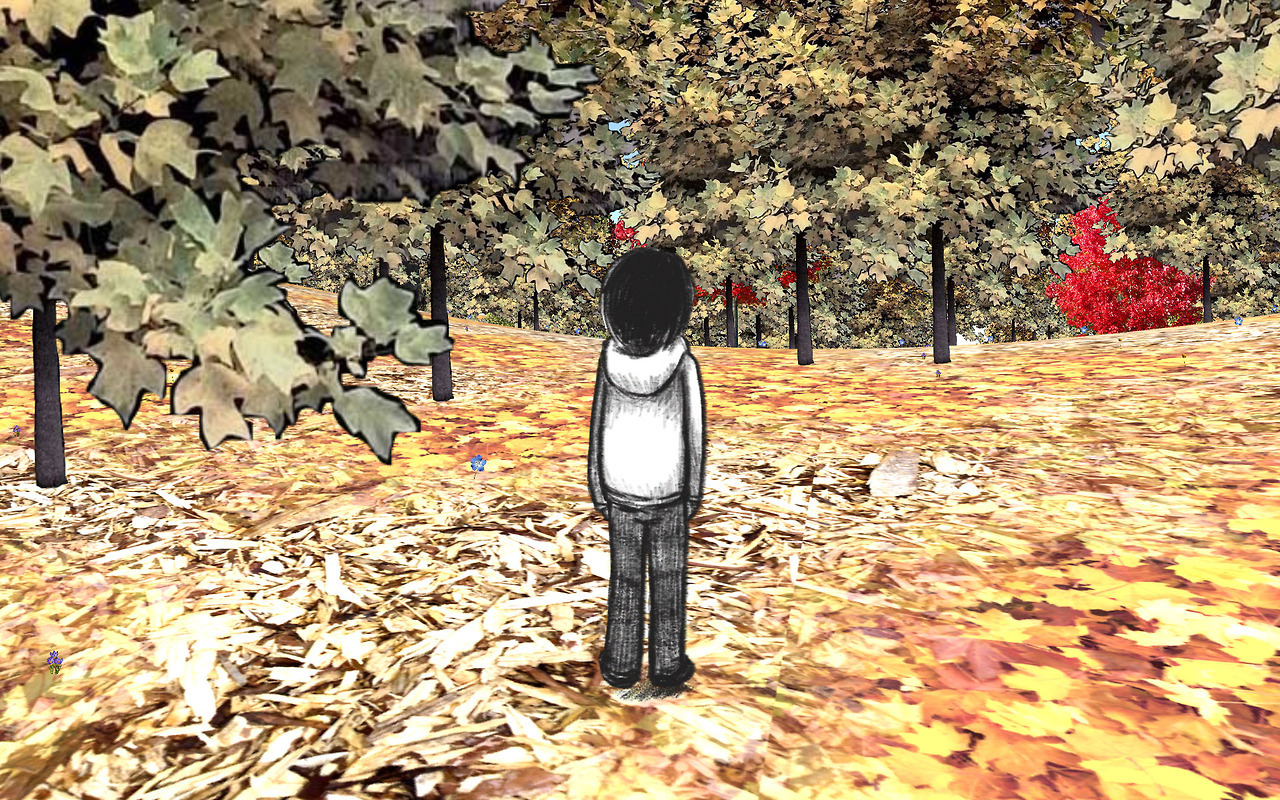

Forest Walk
Forest Walk is a quiet, undemanding walk through generated woods. The recent Slow Game Jam was about bringing the slow movement to games, a bit like slow cinema or slow television. What it means for a game to participate in slowness had several different interpretations, among them this forest walking simulator.
Marrying generated spaces with slow games plays to the strengths of both: the variety from the generation keeps the game from exhausting its outputs early, and the undemanding nature of the experience lets the user take a step back and engage with the results of the generator on its own terms.
